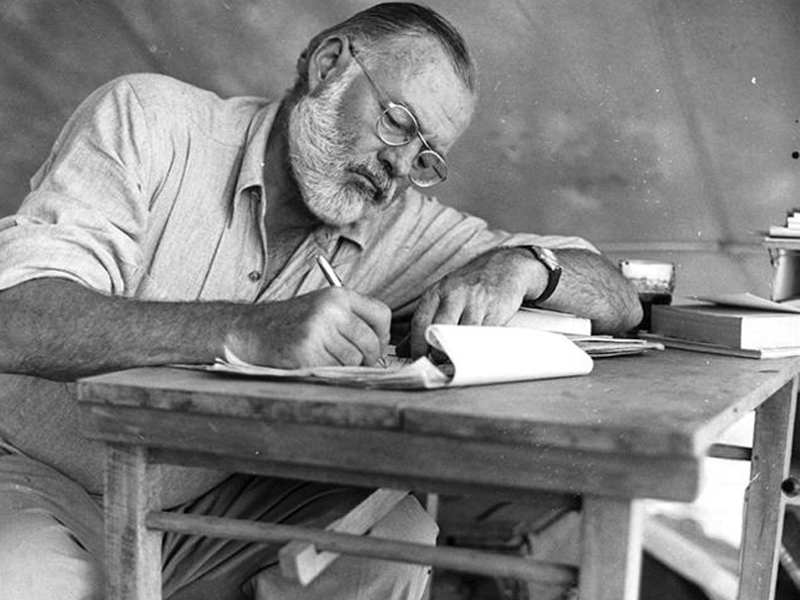I have read many of George Saunders' stories over the past few years. It's surprising that I have yet to write about 'Sea Oak'. The hero of this story works as a male stripper at an establishment called Joysticks. It's common for the customers at Joysticks to offer the employees money in exchange for a flash of the genitals or a picture of a butt. Clearly the men working at Joysticks are objectified yet the main character seems grateful for his job. Perhaps the fact that he is rated a "honeypie" provides a boost to his self-esteem.
Saunders is no stranger to inventing bizarre work environments. This is actually one of his go-to techniques as a fiction writer. The heroes of these stories encounter problems when they fail at their jobs (see 'The Wavemaker Falters') or they are pressured to break the rules. (see 'Offloading for Mrs. Schartz'). Sea Oak is different because the inciting incident of the story involves the hero's life away from work.
Humor is the most effective element of 'Sea Oak'. If any story proves that Saunders is a master of comedy, this is probably the best example. It seems like every section ends in a punchline that propels you into the next section. Sometimes it feels as though the jokes are making fun of the characters so I could see how someone might find the humor offensive. But this type of humor usually works on me pretty well.
There are so many things going on in 'Sea Oak' that it can seem a bit overwhelming. The most integral part of the story is the death and resurrection of Aunt Bernie. There is no explanation for why this happens. Aunt Bernie rises from the dead to deliver life advice to the members of her family. "Show your cock" she says to the narrator so that he can make more money at work. I wonder how Saunders conceived of this aspect of the story because it's ludicrous. This foreshadows some of the bizarre plot events that occur in his later stories.
'Sea Oak' ends on a strangely uplifting note. The is a story where the characters seem to be on a downward spiral into poverty. The narrator's plan to "show his cock" seems to work because he is planning to move his family into a safer apartment. But I would hesitate to call 'Sea Oak' an inspiring story. After reading 'Sea Oak" you come away with better understanding of people living in austere environments. If you have lived you entire life comfortably, then this is an important idea to learn.
Buy Here:
https://amzn.to/2MlWro5
Saunders is no stranger to inventing bizarre work environments. This is actually one of his go-to techniques as a fiction writer. The heroes of these stories encounter problems when they fail at their jobs (see 'The Wavemaker Falters') or they are pressured to break the rules. (see 'Offloading for Mrs. Schartz'). Sea Oak is different because the inciting incident of the story involves the hero's life away from work.
Humor is the most effective element of 'Sea Oak'. If any story proves that Saunders is a master of comedy, this is probably the best example. It seems like every section ends in a punchline that propels you into the next section. Sometimes it feels as though the jokes are making fun of the characters so I could see how someone might find the humor offensive. But this type of humor usually works on me pretty well.
There are so many things going on in 'Sea Oak' that it can seem a bit overwhelming. The most integral part of the story is the death and resurrection of Aunt Bernie. There is no explanation for why this happens. Aunt Bernie rises from the dead to deliver life advice to the members of her family. "Show your cock" she says to the narrator so that he can make more money at work. I wonder how Saunders conceived of this aspect of the story because it's ludicrous. This foreshadows some of the bizarre plot events that occur in his later stories.
'Sea Oak' ends on a strangely uplifting note. The is a story where the characters seem to be on a downward spiral into poverty. The narrator's plan to "show his cock" seems to work because he is planning to move his family into a safer apartment. But I would hesitate to call 'Sea Oak' an inspiring story. After reading 'Sea Oak" you come away with better understanding of people living in austere environments. If you have lived you entire life comfortably, then this is an important idea to learn.
Buy Here:
https://amzn.to/2MlWro5




